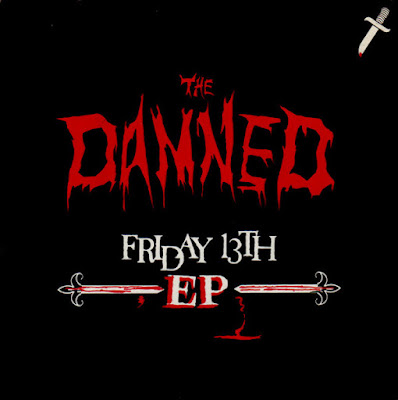
One week at number one on 5th July 1986
Despite the fact he had an established platform to build on, it wouldn’t be unfair to suggest that the group’s lead singer Pete Astor was lucky, however. Fate seemed to slap him encouragingly on his leather trousered arse wherever he went in the mid-eighties. In 1984 Janice Long, at this point presenting an early evening show on Radio One, selected their single “Why Does The Rain” as one of her three favourite singles of the year, an unexpected boost for both the band and a tiny, cash-strapped label like Creation. Intriguingly, I’ve also never met anyone else who genuinely believes it to be in the top three best records released that year – but if you’re going to win those kind of wild plaudits with anyone, a national radio DJ is surely your best outcome.
Then in 1985, journalist Danny Kelly was at a football match where he met Peter Hadfield, the manager of Terry Hall’s new group The Colourfield. Kelly enthused about The Loft, and Hadfield wondered if they might be available to support his group on a major venue tour of the UK. No money changed hands, and sweet and simple arrangements were made to give The Loft a lift on to the professional circuit. As anyone who has ever been in a band will tell you, things seldom happen this easily without meetings, pluggers and expensive tour budgets being involved.
Despite all this, Astor was unhappy, feeling as if he had little in common with the rest of his group and mumbling to McGee and other parties that he didn’t see them as a long-term proposition. He eventually split them up live on stage at the Hammersmith Palais while supporting the Colourfield, a move some deemed legendary and others strangely cold. Vague insults were directed at other band members, and the whole thing drew to a messy close – two singles and endless love and good fortune later, the group were no more.
Astor decided before they even split that The Weather Prophets sounded like a good name for his next group, and they were up and running relatively swiftly, recording a radio session for the ever enthusiastic Janice Long before a single note was captured on vinyl. “Almost Prayed” featured on that debut session and McGee felt strongly it should be their first single, but numerous attempts to re-record it at other studios ended unsatisfactorily, with the group failing to capture the snap and spontaneity of the BBC session. Eventually, all concerned had to reluctantly lease the recording from the BBC for commercial release, though the text on the rear of the sleeve informing you of the fact is written in such a tiny font you might miss it.
There’s a simple reason both Creation and the band were a bit ashamed of this step. BBC sessions often differ from the finished product in many ways, but are usually more stripped back and basic. Fans of bands will often nudge those not in the know and tell them that actually, the John Peel session version of Joy Division’s “Love Will Tear Us Apart” has a bite the single version didn’t, or that Microdisney’s Peel Session versions of the “Crooked Mile” era material punch more forcefully than the Lenny Kaye produced LP. Despite this, the suggestion that any polished, professional recording following a session simply wasn’t as good as the BBC’s quick efforts would be embarrassing for any up-and-coming band, especially one the major labels were keeping a close eye on. It carries suggestions of amateurism and an inability to hold it together as soon as the grown-ups leave the room.
The Weather Prophets would eventually re-record “Almost Prayed” for their debut major label album “Mayflower”, and sure enough, even with WEA’s money and time being spent on it, it remains feeble by comparison, as if the group have been asked to imagine the song being covered by Big Country. So what did producer Barry Andrews (no relation to the ex-XTC member) get right at Maida Vale that everyone else got wrong?
I wasn’t there obviously, but my suspicion is that “Almost Prayed” is one of those songs which gets duller, rather than shinier, the more you scrub it up. In its BBC form, it’s a thing of beauty, three minutes of simple indie-pop which jangles and thumps through Astor’s angst about the fluidity and unpredictability of life; the phrase “You can never go home again” given its best representation on 45. The song’s fuel comes from the almost folky simplicity of its hooks (you can imagine “I almost prayed” being murmured repeatedly at a folk night) and its directness. Place a mid-eighties production over that, and you’re smothering the track in padding when its bare bones need to be visible. Here is a song, after all, with limited chord structures and a simple swing which veers close to something approaching pop, but is ultimately too melancholy – it’s the sound of damp, drizzly nights spent by the coast attempting thought-walks, an introvert’s basic whistling tune. It’s not a daring, bold statement, which is what the band probably wanted their debut single to be, but it is strangely beautiful, which is all that matters in the long term.

